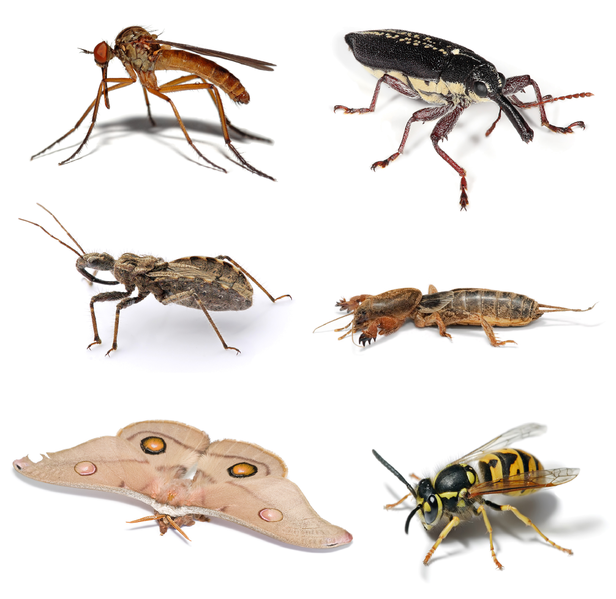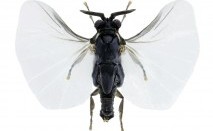
Category: Invertebrates

This class of invertebrates has a chitinous skeleton, a three part body (consisting of a head, thorax, and abdomen), six pairs of jointed legs, compound eyes, and a pair of antenna. They are an incredibly diverse group of animals with more than a million described species that represent more than half of all living organisms. Their growth is constrained by an inelastic exoskeleton that must be shed (molted) in order for them to increase in size. Insects display a staggeringly diverse array of adaptations, from walking on water (water striders), to communicating with light (lightning bugs), and sound (crickets), to complex social behaviors (termites).

Body horror in the insect kingdom
Learning about animals, you can discover many fascinating, even beautiful facts, but there are also things that can give you nightmares! Enter the strepsiptera (“twisted-wing parasite”). The adult female has no limbs, wings, or mouth - she simply lives in and feeds off her host (typically a wasp). When it becomes time to mate, she protrudes part of her abdomen from between the plates of her host and uses mind control to get the wasp to fly off to nearby males. Sexually mature males have wings, and fly around for about five hours before dying - spending their entire short existence seeking out females to mate with. After the female is impregnated, her own young grow and consume her. And once there is nothing left to eat, they leave their host wasp, infiltrate the nursery, and latch on to a larvae to create their own “zombie wasp” host and continue the grisly cycle!
Learn more >>
 Discover Animals is a web-based educational resource offered by the NAIA
Discover Animals is a web-based educational resource offered by the NAIA